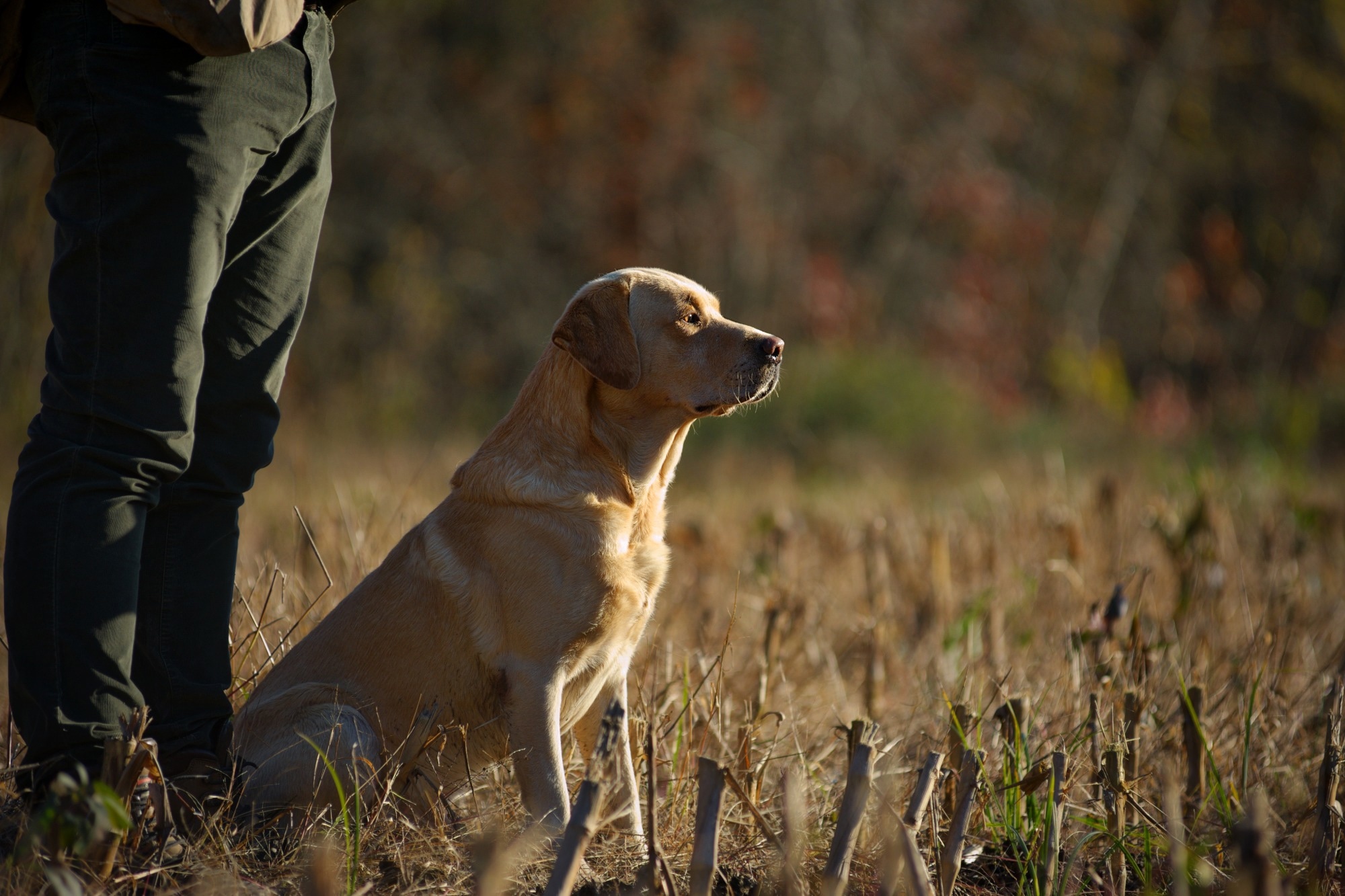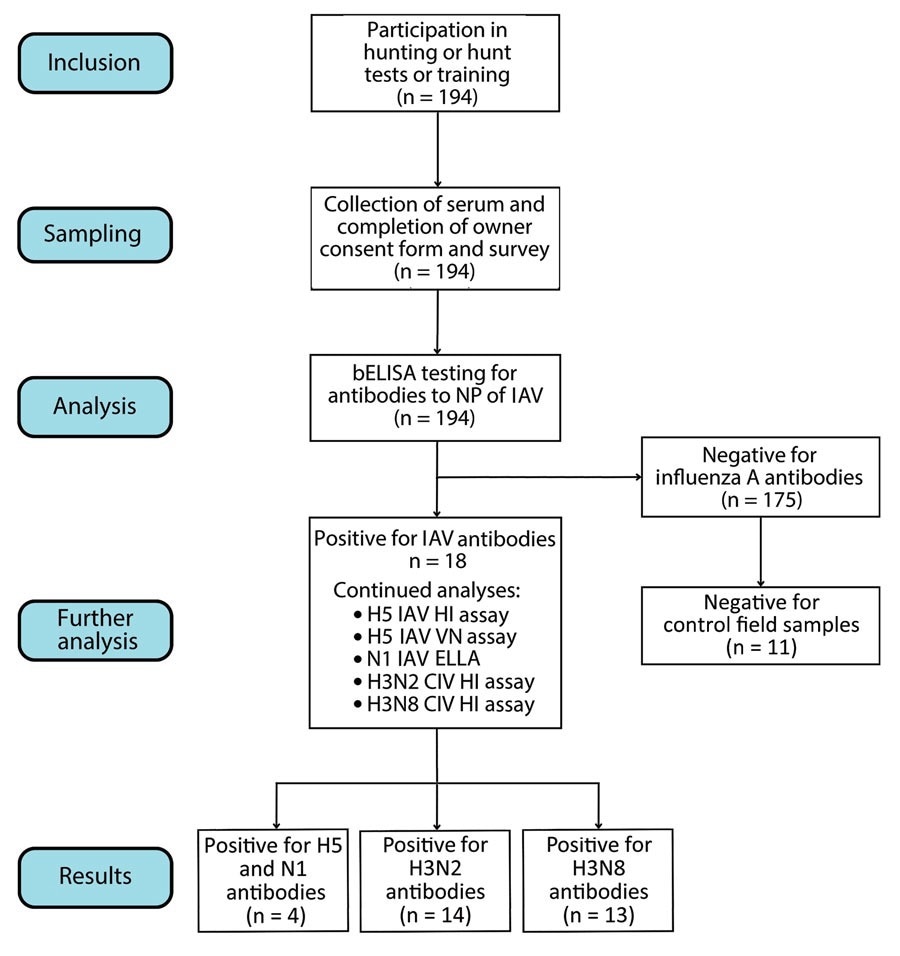A team of US-based scientists has recently identified antibodies to H5 and N1 subtype influenza A virus in hunting dogs from Washington, USA.
The study is published in the Centers for Disease Control and Prevention (CDC) journal Emerging Infectious Diseases.
 Dispatch: Antibodies to Influenza A(H5N1) Virus in Hunting Dogs Retrieving Wild Fowl, Washington, USA. Image Credit: Anna Pozzi - Zoophotos / Shutterstock
Dispatch: Antibodies to Influenza A(H5N1) Virus in Hunting Dogs Retrieving Wild Fowl, Washington, USA. Image Credit: Anna Pozzi - Zoophotos / Shutterstock
Background
The H5 A/Goose/Guangdong/1/1996 (gs/GD) lineage of highly pathogenic influenza A viruses (HPIAV) emerged in China in 1996. The lineage has caused an unprecedented panzootic. The subclade 2.3.4.4b HPIAV H5N1 emerged in 2020 and was transmitted to multiple continents, causing substantial death in poultry and wild birds.
A fatal dog infection caused by a dog eating a duck carcass was reported in Thailand during an HPIAV H5N1 outbreak in 2004. Subsequently, a follow-up serosurvey in Thailand detected HPIAV H5N1 antibodies in 25% of outwardly healthy stray dogs.
Another fatal HPIAV H5N1 infection was detected in 2023 in Ontario, Canada, in a dog that ate a dead wild goose and developed severe respiratory and systemic symptoms. In this context, experimental evidence indicates that beagles are highly susceptible to HPIAV H5N1 infections, as evidenced by high-level virus shedding and the development of severe symptoms.
Existing real-world and experimental data indicates that dogs are susceptible to HPIAV H5N1 infections with varied clinical symptom intensities. Dogs with high virus exposure are more likely to develop this infection.
In this study, scientists have measured antibodies to the influenza A (H5N1) virus in bird-hunting dogs. These dogs are at high risk for contact with HPIAV H5N1-infected wild birds.
Study design
The scientists collected blood samples from 194 dogs during March – June 2023 in Washington, USA. This corresponded to a time frame of 1 – 4 months after the closure of waterfowl hunting season in Washington. The dogs were engaged in bird hunting or bird hunt test and training programs over the past year.
The blood samples were analyzed using various techniques to detect serum levels of antibodies to influenza A (H5N1) virus.

Flow diagram of participation in a serosurvey for antibodies to IAV in hunters and their hunting dogs, Washington, USA. CIV, canine influenza virus; ELLA, enzyme-linked lectin assay; HI, hemagglutination inhibition; IAV, influenza A virus; NP, nucleoprotein; VN, virus neutralization
Important observations
The most commonly contacted wild birds by dogs were dabbling ducks, which are notable reservoirs for HPIAV H5N1. This was followed by geese and diving ducks, also highly susceptible to HPIAV H5N1 infections.
About 38% of tested dogs were involved in more than 15 hunts, and 78% were trained with dead or live birds more than 15 times. About 11% of dogs retrieved dead or clinically ill waterfowl that showed no evidence of having been shot or hunted.
| Dog breed |
H5 and N1 seroprevalence (samples seropositive/tested) |
| Labrador retriever |
2/78 |
| Golden retriever |
0/40 |
| German shorthaired pointer |
0/33 |
| Pudelpointer |
0/11 |
| Chesapeake bay retriever |
0/9 |
| German wirehaired pointer |
1/5 |
| Brittany spaniel |
0/4 |
| Germain longhaired pointer |
0/3 |
| English setter |
0/2 |
| Weimaraner |
0/2 |
| Flat-coated retriever |
0/2 |
| Boykin spaniel |
0/1 |
| Epagneul pont-audemer |
0/1 |
| Irish water spaniel |
0/1 |
| Small munsterlander |
0/1 |
| Standard poodle |
1/1 |
| Total |
4/194 |
Detection of antibody
Anti-influenza A virus antibodies were detected in 9.3% of dogs, and no apparent symptoms of the infection were observed. Of these infected dogs, 78% were seropositive for H3N2, and 72% were seropositive for H3N8 canine influenza virus. The cross-reactivity between H3N2 and H3N8 canine influenza viruses might be responsible for the observed closeness of results.
As reported by dog owners, about 67% of infected dogs were vaccinated against canine influenza. Anti-H5 and anti-N1 antibodies were detected in four out of 18 (22%) infected dogs.
Among four H5- and N1-seropositive dogs, three were not vaccinated against canine influenza virus and were negative for H3N2 and H3N8 antibodies. One H5- and N1-seropositive dog that received vaccination in 2021 had low antibody titer against H3N2 canine influenza virus.
Eleven seronegative blood samples were separately analyzed in the study as negative field controls. All these samples tested negative for anti-H5 antibodies. However, three of these samples tested positive for anti-N1 antibodies. The reason behind N1 seropositivity remained unknown.
According to dog owners' reports, all four H5- and N1-seropositive dogs extensively hunted waterfowl during the past year in regions affected by H5N1 HPIAV outbreaks in wild waterfowl.
Three H5- and N1-seropositive dogs retrieved either dead waterfowl or waterfowl displaying neurological symptoms. Moreover, two H5- and N1-seropositive dogs were from households that owned many hunting dogs that were tested in this study. None of the other dogs from these households tested positive for anti-influenza A virus antibodies.
Study significance
The study finds H5 and N1 seropositivity only in hunting dogs with high-level exposure to waterfowl. The findings suggest that transmission of HPIAV H5N1 from waterfowl to dogs is possible.
However, low seroprevalence, lack of obvious symptoms in seropositive dogs, and lack of evidence for dog-to-dog transmission observed in this study indicate that the subclade 2.3.4.4b H5N1 HPIAV strains that circulated in North America during 2022–2023 are poorly adapted to dogs.
Overall, the study findings highlight that monitoring hunting dogs for influenza A virus seropositivity and promoting dog owners' awareness about infection risk could be an inexpensive and practical approach to reduce the risk of infection spillover to dogs.